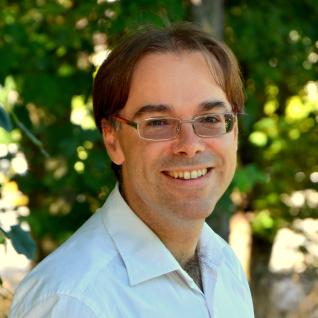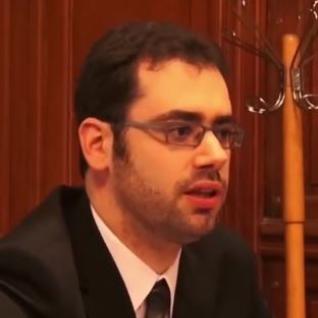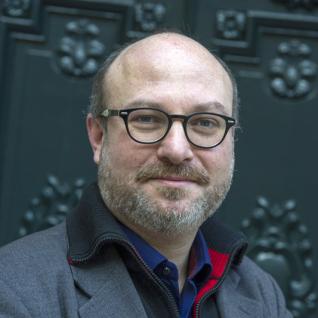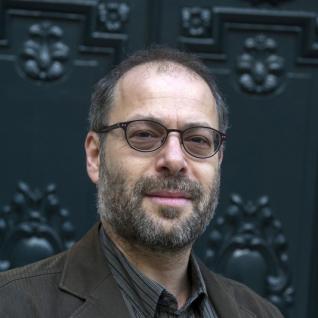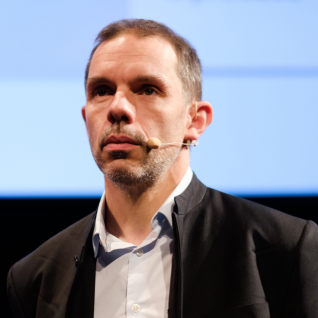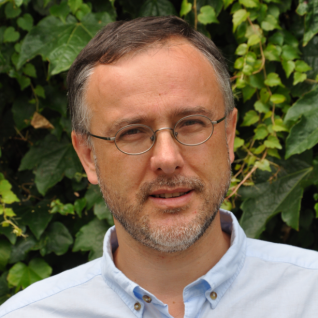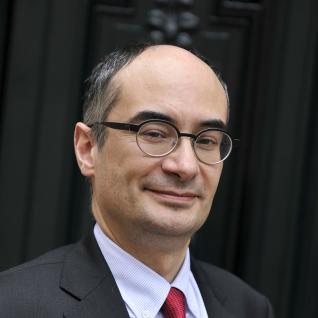Master of Transnational History
Courses
The Master's degree in ‘Transnational History’ (part of the ‘Humanities’ major), awarded by Université PSL, is in keeping with the transnational and global turn that has revolutionised historical studies over the last twenty years as it radically challenged the axiomatic national framework. The curriculum is designed to educate students in the theory and practice of this approach to history.
ThePSL Master of Transnational History is jointly supervised by the École nationale des chartes - PSL and the École normale supérieure - PSL.
Presentation
Transnational history touches on global, imperial, connected and cross-cultural history and cultural transfer issues. It can be defined as an open approach that seeks to question the usual divisions and compartmentalization of historical science.
Transnational history focuses on mobility and circulation (of people, ideas, objects, texts, works of art), and on the history of globalisation, interactions and connections. The discipline also revisits traditional questions such as the construction of the modern state, the origins of the French Revolution, the nationalisation of European societies or the wars of the 20th century.
The courses are taught at two locations:
- École nationale des chartes - PSL: 65, rue de Richelieu, Paris 2nd arrondissement
- ENS: 45, rue d'Ulm, Paris 5nd
This master's degree is affiliated to the Translitteræ graduate programme.
Heads of the Master's Programme
Heads of Education
- Hélène Blais
- Olivier Canteaut
Heads of administration
- Sophie Tissandier (ENS): sophie.tissandier @ ens.psl.eu
- Julien Cassefieres and Élise Charrel (ENC): etudes @ chartes.psl.eu
See the Master of Transnational History brochure
Télécharger
Scolarité
Curriculum
An Innovative Curriculum
The curriculum is designed so that students might combine the demands of in-depth empirical research with the broader perspective of their subject matter:
- A core curriculum which teaches students historiographical references and methodological tools. Particular emphasis is placed on archival research on a global scale and in the digital humanities.
- At least two seminars are organized to ensure geographical and thematic specialisation.
- The programme's interdisciplinary approach, with seminars in anthropology, art history, sociology, geography, literature and philosophy, is another of its structuring principles.
- The curriculum focuses on the international dimension. Students are strongly encouraged to carry out research visits in their field and to spend a semester at a partner university abroad offering a transnational studies course (Berlin, Leipzig, Geneva, London). To this end, students can learn two foreign languages from the extensive choice of language courses offered at ENS.
- Research dissertations, whose subjects will be defined in the first semester in agreement with the teaching staff, may cover all periods of history, European and non-European areas, and a variety of themes (e.g., the history of empires, the history of circulation, the history of knowledge, the history of the visual arts, and the history of borders and territories). Students must submit their dissertation at the end of the M2 course programme. They are required to deliver a progress report at the end of the M1 course programme.
Why choose the ENS - ENC Master of Transnational History?
Intensive education (a formative core curriculum, methodological support), close mentoring (one-to-one tutoring, collective research and writing workshops)
An Interdisciplinary and internationally - focused curriculum
- Ten mobility fieldwork grants or to study at partner universities (Switzerland, Germany, Italy, the UK, etc.)
- An exceptional choice of language courses
Two internationally renowned institutions within PSL, in Paris, a world metropolis that offers considerable resources for transnational history research (libraries and archives, teaching institutions, cultural life).
A few members of the academic team
Patrick Arabeyre* (history of law); Jean-Pierre Bat* (history of Africa); Hélène Blais (imperial history); Olivier Canteaut* (medieval history); Christophe Gauthier* (history of the media); Charlotte Guichard (history of art); Jean-Louis Halpérin (history of law); Rahul Markovits (history of circulation); Christophe Gauthier* (history of the media); Charlotte Guichard (history of art); Jean-Louis Halpérin (history of law); Rahul Markovits (history of circulations); Olivier Poncet* (modern history); Pascale Rabault-Feuerhahn; Pierre Salmon (contemporary history); Nathan Schlanger* (history of heritage); Valérie Theis; Stéphane Van Damme; Édouard Vasseur* (modern history); Blaise Wilfert-Portal (transnational cultural history); Claire Zalc (history of migrations)
* ENC professors
Pourquoi choisir le master « Histoire transnationale » ENS - ENC
Une formation intensive (un tronc commun structurant, un accompagnement méthodologique), un encadrement étroit (tutorat individualisé, ateliers de recherche collective et d’écriture)
Une formation interdisciplinaire et tournée vers l’international :
- Dix bourses de mobilité sur le terrain ou dans des universités partenaires (Suisse, Allemagne, Italie, Grande-Bretagne…)
- Un choix de cours de langues exceptionnel
Deux établissements de renommée internationale au sein de PSL, à Paris, métropole-monde qui offre des ressources considérables pour la recherche en histoire transnationale (bibliothèques et archives, institutions d’enseignement, vie culturelle)
Quelques membres de l’équipe pédagogique
Patrick Arabeyre* (histoire du droit) ; Jean-Pierre Bat* (histoire de l’Afrique) ; Hélène Blais (histoire impériale) ; Olivier Canteaut* (histoire médiévale) ; Christophe Gauthier* (histoire des médias) ; Charlotte Guichard (histoire de l’art) ; Jean-Louis Halpérin (histoire du droit) ; Rahul Markovits (histoire des circulations) ; Olivier Poncet* (histoire moderne) ; Pascale Rabault-Feuerhahn ; Pierre Salmon (histoire contemporaine) ; Nathan Schlanger* (histoire du patrimoine) ; Valérie Theis ; Stéphane Van Damme ; Édouard Vasseur* (histoire moderne); Blaise Wilfert-Portal (histoire culturelle transnationale) ; Claire Zalc (histoire des migrations)
* Enseignants ENC
Prospects
This is a research master's programme, and students will be supported in the writing of a thesis (with a view to receiving a doctoral grant). Students wishing to prepare for the agrégation competition exam may apply for auditor status at the ENS.
Furthermore, through the subjects covered, the importance placed on foreign languages and the semester spent abroad, students will be prepared to apply for international jobs (‘Cadre d’Orient’ competitive examination, NGOs, international organisations).
Teaching Team
Admission
Candidates must apply and enrol at the École Normale Supérieure - PSL.

